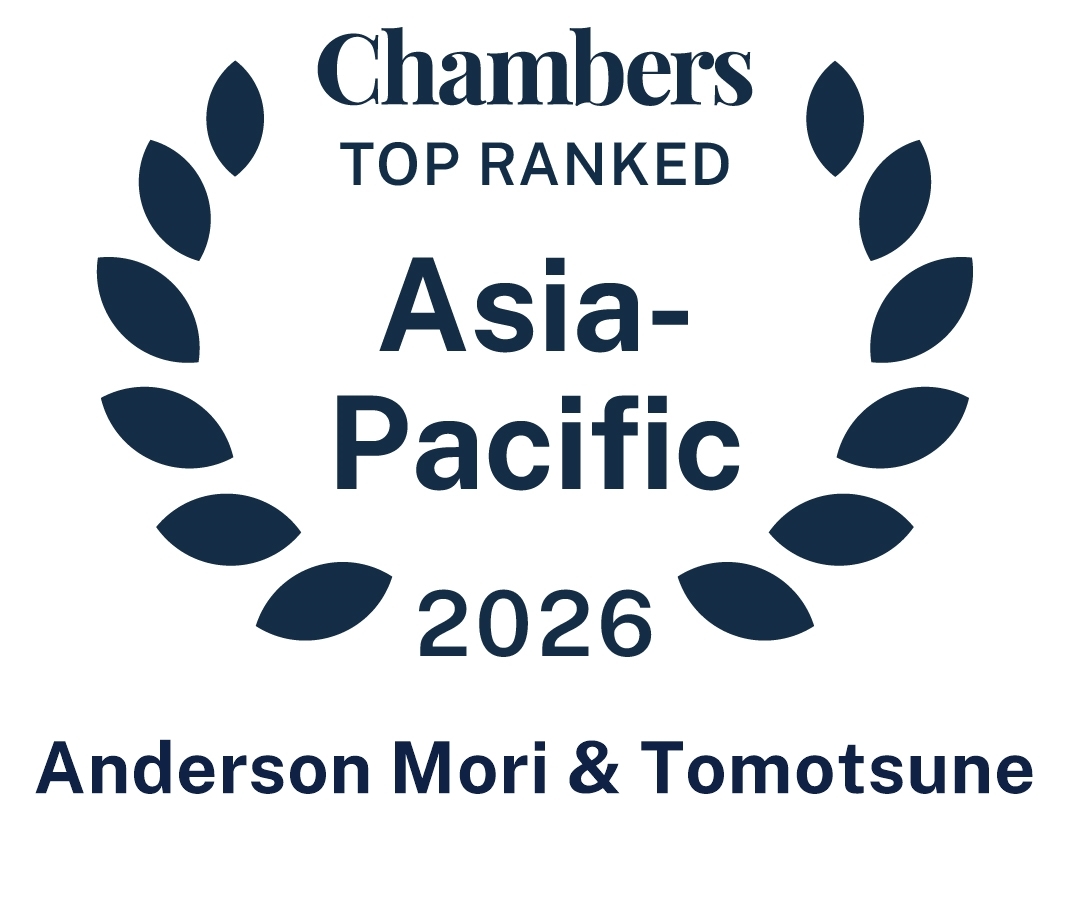
Tokyo District Court’s New Framework for Global SEP Dispute Resolution
In January 2026, the Intellectual Property Divisions of the Tokyo District Court (TDC) published the "Procedural Protocols for Patent Infringement Litigation Involving Standard Essential Patents (SEPs)" (the "Protocols").

Outline of 2026 Tax Reform Plan
An outline of the 2026 Tax Reform Plan was approved by the Cabinet decision on December 24, 2025. We hereby provide a summary of significant amendments in the 2026 Tax Reform Plan which would affect especially foreign business.

Amendments to the PMD Act and Related Laws
On May 14, 2025, the Act Partially Amending the Act on Securing Quality, Efficacy and Safety of Pharmaceuticals, Medical Devices, etc. and Related Laws was enacted. The amended Act on Securing Quality, Efficacy and Safety of Pharmaceuticals, Medical Devices, etc. (the "amended PMD Act") and the amended Medical Care Act (the "amended Medical Care Act") are to be brought into force in stages, and part of the amendments has already come into effect as of November 20, 2025. The key points of the amendments are outlined below.

Summary of the Act to Amend the Subcontract Act (Effective January 1, 2026)
The act to amend the Act against Delay in Payment of Subcontract Proceeds, etc. to Subcontractors (the "Subcontract Act"), which will be renamed to the Act Against Delay in Payment of Fees, etc. to Small and Medium-sized Entrusted Business Operators in Manufacturing and Other Specified Fields (the "Amended Act"), will come into effect on January 1, 2026. While the Subcontract Act had undergone numerous minor revisions through previous amendments, the Amended Act represents a comprehensive overhaul that is distinct from those prior revisions. It goes beyond merely altering the act's name, imposing significant changes that compel large procuring enterprises to review their practices and transform their operations.

Japan’s Major Topics of Energy and Natural Resources in 2025
Below is a brief description of the some of the key issues that have emerged with respect to Energy and Natural Resources in Japan during the year 2025:

Guide: Japanese AI Startups Investment and M&A (Including Due Diligence Checklist)
The global surge in artificial intelligence (AI) has accelerated investment and M&A targeting the technology and talent of Japanese AI startups. While Japan lacks a comprehensive regulation specifically for AI—relying instead on "soft law" frameworks like the AI Guidelines for Business Ver1.1—this does not imply a lack of legal risk. Japanese AI startups remain fully subject to existing regulations, including the Copyright Act and the Act on the Protection of Personal Information (APPI). Therefore, foreign investors targeting Japanese AI startups need to navigate a unique local legal landscape.

Patent Linkage in Crisis – Judicial Conflict and Administrative Response
Japan’s pharmaceutical patent linkage system is facing a critical turning point. Unlike the U.S. Hatch-Waxman Act, Japan’s system relies on administrative notifications rather than statutory law, creating a structural disconnect between regulatory approval (under the Act on Pharmaceuticals and Medical Devices) and patent infringement liability (under the Patent Act). In 2025, this disconnect has manifested in conflicting court rulings and a new administrative initiative that may further complicate the landscape.




